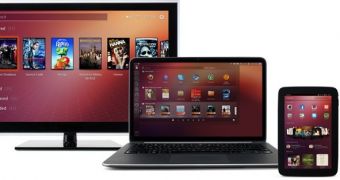The idea of convergence has been floating around for quite some time and companies like Microsoft, Apple, and Canonical are already working towards this goal. On the other hand, there are some voices that say it will never happen. KDE developer Aaron Seigo is one of those voices.
KDE was actually the first project that played with the idea of device convergence, although it wasn't called that back then. Things have evolved, and in the meantime more companies have reached the same conclusion. Convergence is a goal and it will happen.
Aaron Seigo makes a powerful case against it and brings a few good arguments and examples to make a point. He also defines convergence as he sees it, although not everyone would agree with his assessment.
“Convergence literally means the act of coming together from different directions as so to eventually meet. As it has been popular used recently, it means that different kinds of devices (e.g. a phone and a desktop; a tablet and a laptop) will ‘converge’ into a single piece of hardware that can be used in different modes so that sometimes it has a ‘phone’ style UI and sometimes a 'desktop’ one (for example).”
“The range of devices is growing: wearables (watches and glasses), smartphones (of various shapes), tablets, mediacenters, game consoles, laptops, desktops, workstations, appliances (e.g. fridges), cars, .... the range of devices is growing rather than shrinking or converging. This is not simply due to the software in use not being ready for it. It is because there is value in having multiple devices with different form factors. For this reason we have a device spectrum that continues to emerge, rather than a converging set of devices,” says Aaron Seigo.
This would be true in some sense, but companies are no longer making use of that definition of convergence. Canonical, for example, is trying to build a single code base for all its devices. Aaron Seigo's definition would apply to Ubuntu for Android, but the current direction of the convergence idea is very different.
In fact, Microsoft is already doing something similar. They are working to make the life of the developers much easier by allowing them to build a single application that will run on multiple platforms, like phone and desktop. Apple is already doing something similar.
The kind of convergence described by Aaron Seigo will not happen, at least not in the immediate future, but true convergence at code level is already here.

 14 DAY TRIAL //
14 DAY TRIAL //